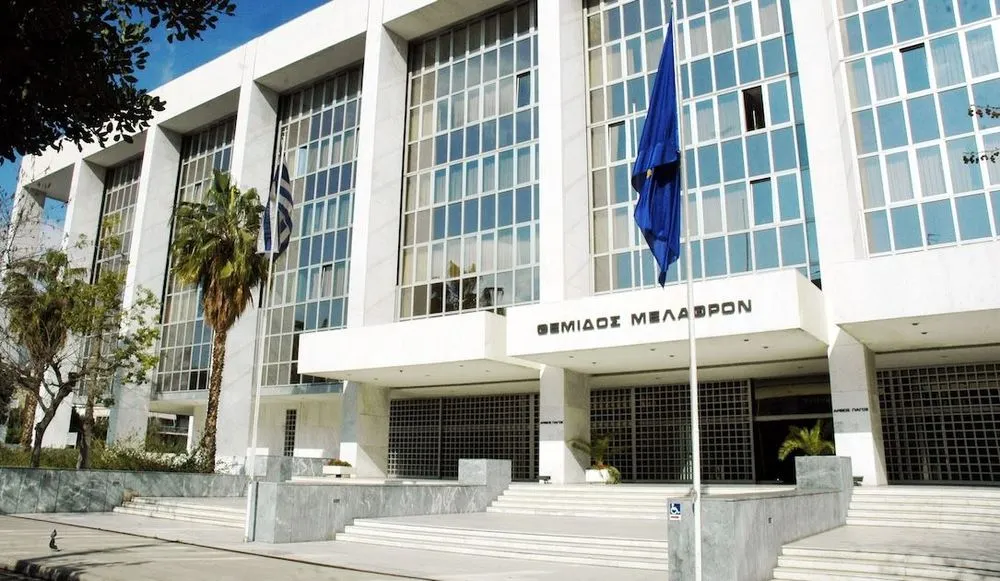Greek prosecutor says government played no role in civil society spyware infections
A Greek investigation into a sprawling domestic spyware scandal that emerged in 2022 found no evidence any state entity had purchased or used powerful spyware targeting or infecting devices belonging to several journalists, politicians and business executives, a top prosecutor said.
Greek Supreme Court Prosecutor Georgia Adeilini said Tuesday the probe into how powerful Predator spyware ended up on prominent Greek public figures’ phones found that none of the country’s state services, including its National Intelligence Service (EYP), were involved in acquiring or deploying the technology, according to local news reports.
The Supreme Court said the EYP’s separate use of spyware between 2020 and 2024 was legal and a former EYP prosecution ensnared in the scandal had been found not guilty.
Opposition politicians called the findings a coverup, taking to social media to attack the ruling as tainted.
“Today, with the decision to archive the EYP Predator scandal, my trust in the Greek judicial system has been seriously shaken,” Stefanos Kasselakis, an opposition politician, said in an X post.
A second opposition politician, Alexis Charitsis, said the findings made Tuesday a “day of shame” for Greeks and underscored that independent investigations have documented that the improper use of the spyware was directed by the country’s prime minister’s office, according to local news reports.
Evidence of spyware was found on at least 33 citizens’ devices, according to a November 2022 Greek newspaper report, which said victims included opposition party politicians and their families along with reporters and business leaders.
According to The Citizen Lab, in 2022 its researchers found that phones belonging to Greek journalist Thanasis Koukakis, a former manager at the tech giant Meta and other victims were infected with Predator.
An investigation by Greek data protection regulators found Predator tied to 350 text messages that were part of the infection chain . and said 88 people’s phones had been targeted with the powerful spyware, according to a 2023 Amnesty International report.
The use of spyware in Greece was an “ad hoc” way for the ruling party to achieve “political and financial gains,” according to an August 2023 European Parliament press release quoting a lengthy investigative report from the body.
“Even though Greece has ‘a fairly robust legal framework in principle,’ legislative amendments have weakened safeguards,” the Parliament press release said.
“As a result, spyware has been used against journalists, politicians and businesspersons, and exported to countries with poor human rights records,” it added.
Parliament’s report said the Greek government must “urgently restore and strengthen the institutional and legal safeguards” to ensure there is no future spyware abuse. The country must also “repeal export licenses that are not in line with EU export control legislation,” the release summarizing the report said.
In March, the Treasury Department announced sanctions against two people and five entities attached to Predator’s manufacturer, the Intellexa Commercial Spyware Consortium, saying its “developing, operating, and distributing commercial spyware technology used to target Americans, including U.S. government officials, journalists, and policy experts” justified the harsh penalty.
Tal Jonathan Dilian, who founded the consortium, was sanctioned for his role in building Predator, which has been used since at least 2019 and can infiltrate both Android and iPhone devices.
The Treasury Department called the Intellexa consortium a “complex international web of decentralized companies controlled either fully or partially by Dilian.”
Suzanne Smalley
is a reporter covering digital privacy, surveillance technologies and cybersecurity policy for The Record. She was previously a cybersecurity reporter at CyberScoop. Earlier in her career Suzanne covered the Boston Police Department for the Boston Globe and two presidential campaign cycles for Newsweek. She lives in Washington with her husband and three children.



